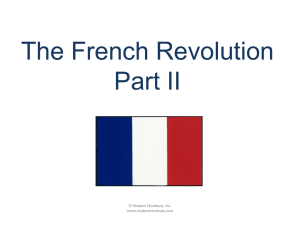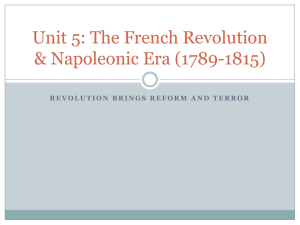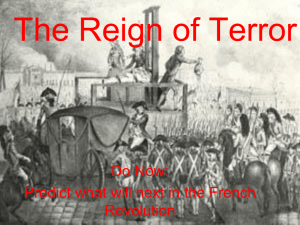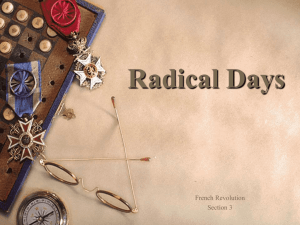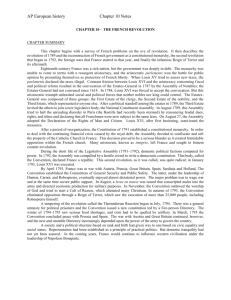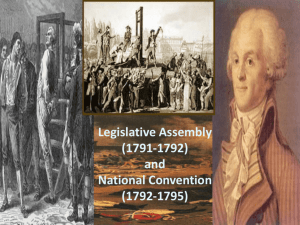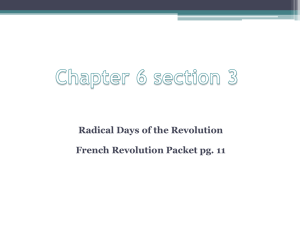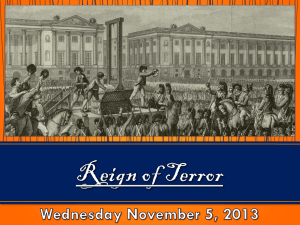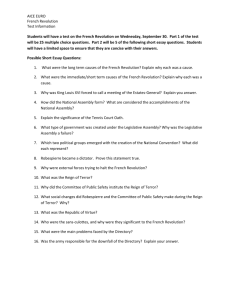Constitutional Monarchy (1791
advertisement
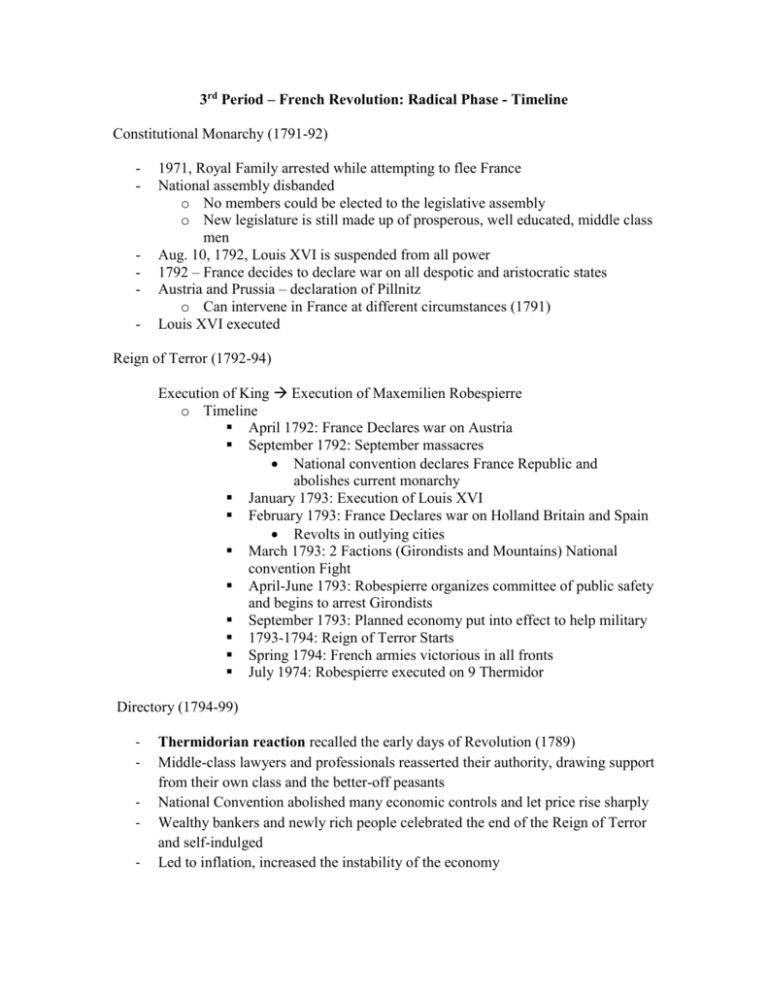
3rd Period – French Revolution: Radical Phase - Timeline Constitutional Monarchy (1791-92) - - 1971, Royal Family arrested while attempting to flee France National assembly disbanded o No members could be elected to the legislative assembly o New legislature is still made up of prosperous, well educated, middle class men Aug. 10, 1792, Louis XVI is suspended from all power 1792 – France decides to declare war on all despotic and aristocratic states Austria and Prussia – declaration of Pillnitz o Can intervene in France at different circumstances (1791) Louis XVI executed Reign of Terror (1792-94) Execution of King Execution of Maxemilien Robespierre o Timeline April 1792: France Declares war on Austria September 1792: September massacres National convention declares France Republic and abolishes current monarchy January 1793: Execution of Louis XVI February 1793: France Declares war on Holland Britain and Spain Revolts in outlying cities March 1793: 2 Factions (Girondists and Mountains) National convention Fight April-June 1793: Robespierre organizes committee of public safety and begins to arrest Girondists September 1793: Planned economy put into effect to help military 1793-1794: Reign of Terror Starts Spring 1794: French armies victorious in all fronts July 1974: Robespierre executed on 9 Thermidor Directory (1794-99) - Thermidorian reaction recalled the early days of Revolution (1789) Middle-class lawyers and professionals reasserted their authority, drawing support from their own class and the better-off peasants National Convention abolished many economic controls and let price rise sharply Wealthy bankers and newly rich people celebrated the end of the Reign of Terror and self-indulged Led to inflation, increased the instability of the economy - - - Hit the lower peasantry (sansculottes), led them to revolt against the merging new order in 1795 National Convention controls revolts Revolutionary spirit from the poor subsided 1796 – 1801 Women of rural France worked for a return to a normal and structure lifestyle, through the Catholic church o Religious questions and beliefs resurfaces 1795 Middle class of the National Convention wrote another constitution in which they established an electoral system o Reorganized Legislative assembly where they chose five-man executive called the Directory The Directory stressed military expansion to create an increase in job opportunities 1797 the Directory an increase in conservative and monarchist deputies were elected, favoring peace Effort to Establish stable representative government had failed November 9-10, 1799 Napoleon replaces the Directory with strong dictatorship with coup d’état (the sudden unconstitutional overthrow of a government) Group 1 – Key Terms Girondists and Jacobins – groups within the national convention Declaration of Pillnitz- declares that Austria and Prussia will intervene in France under certain circumstances The Mountain – another group within the national convention led by Robespierre Edmund Burke – wrote pamphlet promoting the power of the 3rd estate Olympe de Gouges – wrote Listening to the Past: Revolution and Women’s Rights, in support of Mary Wollstonecraft’s ideas on the rights of women National Convention – formed when Louis XVI power was suspended Group 2 – Key Terms Sans-culottes “without breeches” The laboring poor and traders who wore trousers instead of kene breeches of the aristocracy and the solid middle class Planned Economy The government set maximum allowable prices for a host of key products, such as the price of bread in Paris (evidently set for the poor to be able to afford) The poor in Paris had a constant supply of food due to this A form of Socialism (leads to black market??) The Reign of Terror 1793-94 Most controversial phases of the French Revolution They used scare tactics to put order and laws into effect. Used terror to kill everyone without having proof or witnesses. Nationalism Having pride and patriotic dedication to a nation (Modern nationalism) Girondists Moderate part of the National Assembly The Mountain Led by Robespierre and Georges Jaques Danton More radical part of the National Assembly

